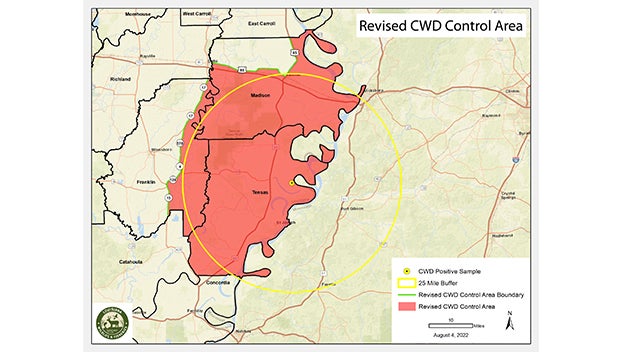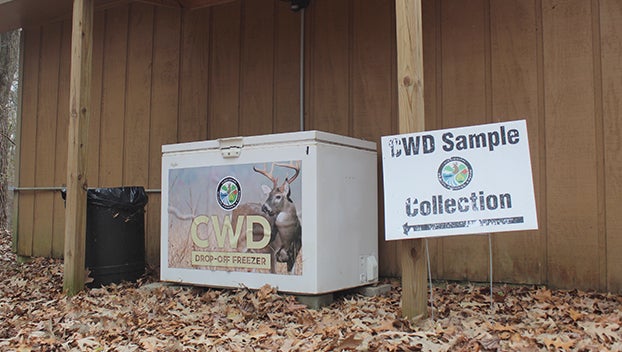LDWF updates Chronic Wasting Disease control area
Published 1:46 pm Thursday, August 11, 2022
|
Getting your Trinity Audio player ready...
|
BATON ROUGE — Louisiana Department of Wildlife and Fisheries issued a Declaration of Emergency on August 10, 2022 to extend the Chronic Wasting Disease Management Zone.
This zone was amended on August 3, 2022 to exclude portions of Franklin Parish and Madison Parish. LDWF has published a map of the CWD Control area which remains under a feeding and carcass export ban.
The new map and boundaries will apply to the CWD Control Area once the current Notice of Intent becomes an official rule on August 20, Deer Program Director Johnathan Bordelon said. A portion of Concordia Parish is within a 25 mile buffer of where the positive was found near Yucatan Lake in Tensas Parish but it is not in the CWD control area.
What this order means:
- All supplemental feeding, including mineral or salt licks, is prohibited in the control area. The purpose of this feeding ban is to reduce the potential for the spread of CWD in Louisiana by reducing the risk of exposure when deer are concentrated around feeding sites.
- The use of approved bait not normally ingested by deer for feral hog trapping will be allowed. All bait must be placed and contained within the trap itself. Backyard bird feeders are also exempt from this supplemental feeding prohibition.
- The export of cervid carcasses or part of a cervid carcass originating within the control area is prohibited, except for: meat that is cut and wrapped; meat that has been boned out; quarters or other portions of meat with no part of the spinal column or head attached, antlers, clean skull plates with antlers, cleaned skulls without tissue attached, capes, tanned hides, finished taxidermy mounts and cleaned cervid teeth.
LDWF instituted its CWD Incident Action Plan in those three parishes in response to an adult buck harvested in December 2021 in Tensas Parish being diagnosed with CWD, a disease that is always fatal to deer. It was the first deer recorded with CWD in the state, making Louisiana the 29th state to discover the disease.
Other than the initial case, CWD was not detected in any of the 218 samples collected in the three parishes and submitted to the Louisiana Animal Disease Diagnostic Laboratory for testing. Additional samples are still being collected and analyzed, as LDWF continues its surveillance in this CWD Control Area.
LDWF is still waiting on the DNA test results from the Tensas buck to return from Texas A&M University. The results could give more insight to if the buck was a pen raised deer or a local deer.






